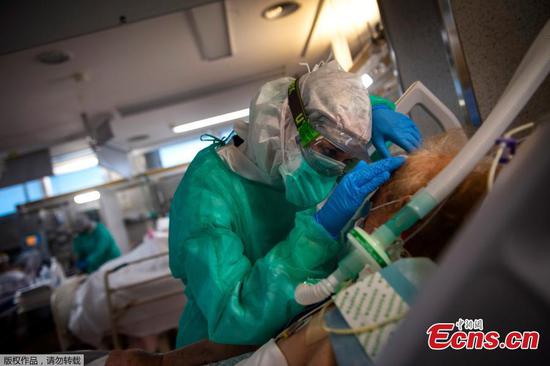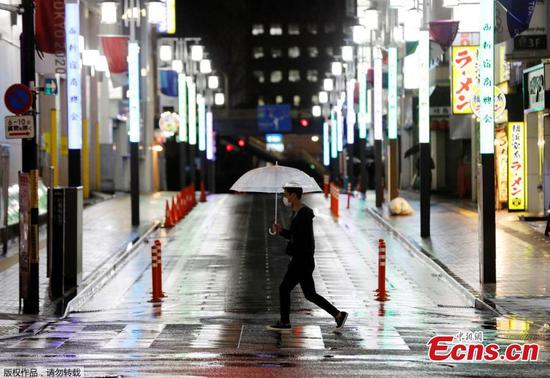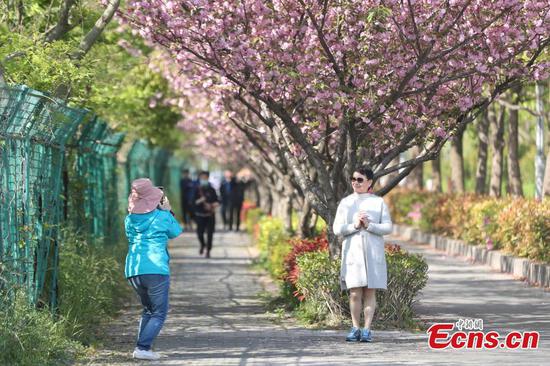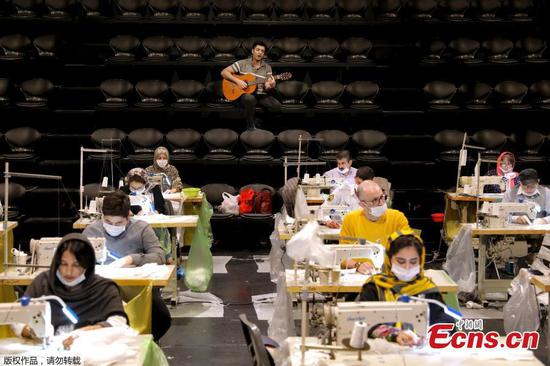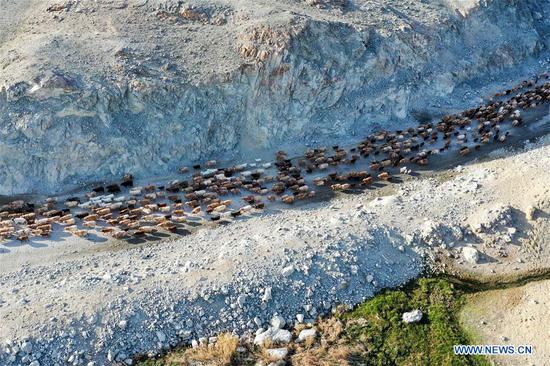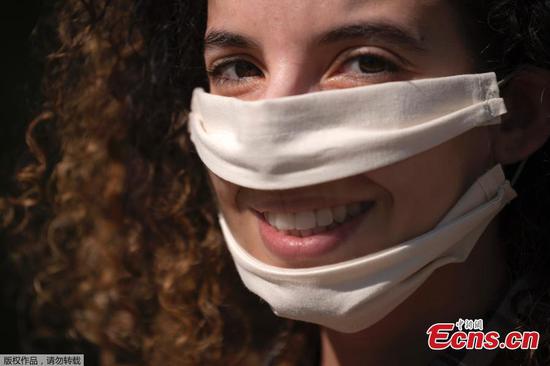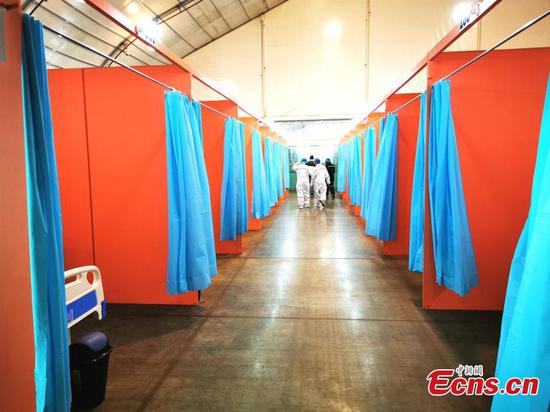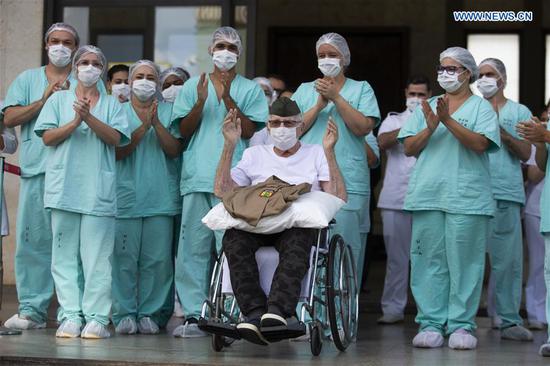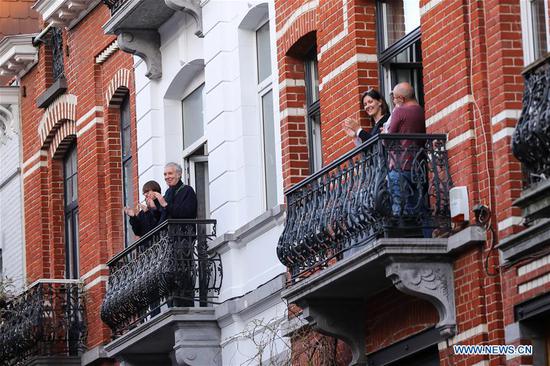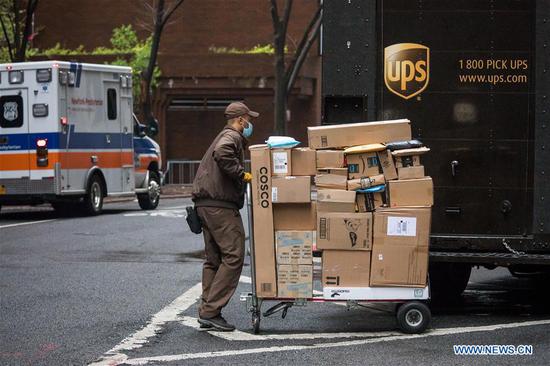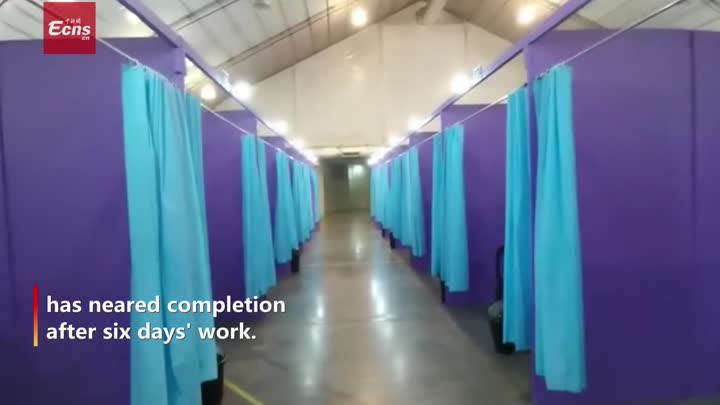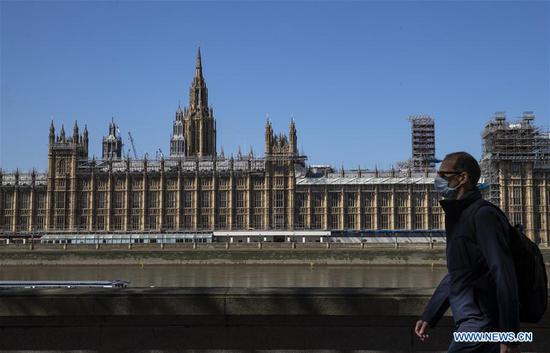
Photo taken on April 14, 2020 shows a man walking in front of the Houses of Parliament in London, Britain. (Xinhua/Han Yan)
World Health Organization (WHO) Regional Director for Europe Hans Kluge on Thursday described the continent as being in the "eye of the storm" as some European countries start to reopen over signs of a slowing in the spread of the COVID-19 pandemic.
"EYE OF STORM"
Speaking at a briefing broadcast online from the WHO Regional Office for Europe in Copenhagen, Kluge said: "the storm clouds of this pandemic still hang heavily over the European region."
According to Kluge, about one million Europeans have been infected with COVID-19, making up about 50 percent of the global total.
Kluge made a call for action to European governments as some Europeans were letting down their guard as they found social distancing and lockdowns tiresome and without end.
Emphasizing there were no "quick wins," Kluge went on to list six key points from new guidelines drawn up by his office for European governments transitioning from a lockdown. The guidelines are due to be released in full next week.
-- Evidence shows COVID-19 transmission is controlled.
-- Public health and health system capacities must be made ready to identify, isolate, test, trace contacts and quarantine.
-- Outbreak risks must be minimized in high-vulnerability settings such as homes for the elderly, mental health facilities and people residing in crowded places.
-- Workplace preventive measures must be established, including physical distancing, hand-washing facilities, and respiratory etiquette.
-- Importation risks can be managed.
-- Community engagement and participation in the transition.
"If you cannot ensure these criteria are in place, before easing restrictions, I urge you to re-think," said Kluge.
EASING OF LOCKDOWN
Some European countries have started tentative easing of restrictions or are preparing for it.
Denmark announced last week gradually reopening of daycares, kindergartens and part of primary schools, making it the first country in Europe to send their youngest children back to their institutions. The government is expected to expand the reopening by April 20.
French President Emmanuel Macron on Monday announced that the lockdown might begin to be eased starting from May 11. Nurseries and schools would gradually reopen, but cafes, cinemas and cultural venues would remain closed, and there could be no summer festivals until mid-July at the earliest.
President of the Swiss Confederation Simonetta Sommaruga on Thursday announced the decision to ease the restrictions in three phases from April 27.
In Germany, although Chancellor Angela Merkel announced on Wednesday that the general contact restrictions would be extended till May 3, her government eased some measures.
As of April 20, shops with up to 800 square meters of sales area would be allowed to open under strict hygiene regulations and restrictions. Car dealers, as well as bicycle and book shops, could open regardless of their sales area.
Cypriot cabinet approved on Wednesday a three-stage plan for an exit from the current coronavirus crisis, which aims for the gradual lifting of restrictions and the reopening of vital businesses from early May, provided the epidemiological data allow it.
Italy, one of the hardest-hit European countries, on Tuesday reopened book and stationery stores, businesses selling baby products, and electronics repair shops.
Italian Prime Minister Giuseppe Conte has appointed a special task force of economists, labor leaders, managers, and psychologists to advise him on the so-called "phase 2," which aims for gradually widening the reopening.
SPLIT IN APPROACH
While some are easing the measures, others are maintaining restrictions or even tightening.
Portuguese parliament approved on Thursday the second extension of the state of emergency until May 2.
Sweden on Thursday announced an extension of the restrictions on international travel until May 15. Prime Minister Stefan Lofven said that it may take months before Sweden can lift other restrictions put in place to stem the spread of the coronavirus.
"It is still way too early to ease restrictions and recommendations," said Lofven.
The Serbian government has announced a stricter curfew during this weekend, from 5 p.m. Friday to 5 a.m. Tuesday.
Albanian lawmakers approved amendments of the Criminal Code on Thursday, under which violators of anti-pandemic restrictions will face a maximum penalty of eight years in jail.
On whether to open schools by the end of May or finish this school year online, Croatian Minister of Science and Education Blazenka Divjak told reporters on Tuesday that the European Union (EU) states are split.
After a four-hour video conference of European education ministers, Divjak said that half of the EU member states are considering bringing back students to schools by the end of May, while the other half contemplate finishing the academic year in the online form.
"Coordination is necessary to enable high-grade education and finish of the school and academic year in this difficult situation," said the minister of Croatia, which took over the rotating presidency of the Council of the EU on Jan. 1. Enditem









